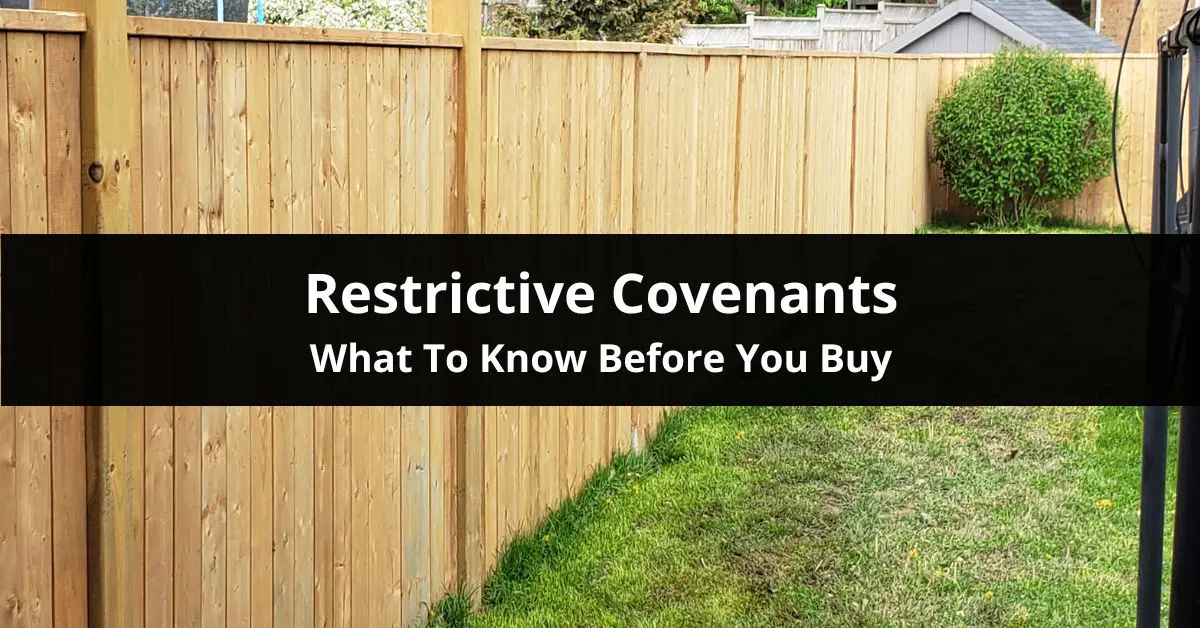When you find your dream home, you may also find restrictive covenants attached. Don’t worry, restrictive covenants are common and occur on almost every property. They are not a deal breaker when shopping for a home.
Restrictive covenants might simply mean you lose the picket fence you wanted. Even if you lose the fence, by knowing how to work within the deed restrictions you may be able keep your wraparound porch and a swing set for your kids (if you plan on having a family).
This guide to restrictive covenants will help prepare you to keep the features that matter most to you when purchasing your dream home, and prepare you in case you do have to give up one or two of the lesser important ones. But first, let’s look at what restrictive covenants are.
What Are Restrictive Covenants?
Restrictive covenants, also known as deed restrictions, are limitations on how you can use your property. Many times these restrictions involve a homeowners association or a deed-restricted community. A deed restriction violation can result in a fine, lien, or foreclosure.
Common type of restrictive covenants are:
- The number or type of vehicles you can have on your property
- How many pets and types of animals you can keep
- The type of fence you can build
- If you can run a home business
- Preventing you from renting or leasing your property
- What colors you are allowed to paint your home
- If you can add structures like a pool or shed
These restrictions can stop you and your neighbors from doing things like having chickens to painting your home neon pink. They are typically designed to make your neighborhood better for the community, which sometimes means giving up a couple things you like for the greater good.
Deed restrictions for example are usually imposed to maintain and keep property values high and are usually enforced by an HOA or the entity who created the restriction. However, restrictive covenants can also be written into deeds when a property is sold, so property owners will sometimes add interesting restrictions.
Fun fact: Restrictive covenants date back to 18th and 19th century England, and some of these restrictions still remain today.
Are you wondering how to know if the property you want to buy, or if your current property has a restrictive covenant? We’ve got you covered.
How To Know If You’re Looking At A Deed Restricted Home
Buying a deed restricted property can create problems if you’re not aware of the restrictive covenants. For example, a Texas family’s flower beds resulted in over $20,000 in fines and over $100,000 in legal bills! This is why it is important to know what you can and cannot do.
To find if there are restrictive covenants on a property you are looking at:
- Ask your real estate agent.
- Contact a title company to do a title search.
- Set up an appointment with the HOA.
- Talk with the municipal clerk and urban planning department.
Note: Deed restrictions and HOA rules are not the same thing. However, a home can be subject to both.
And good news, restrictive covenants can be removed and sometimes negotiated. That means you may still get the wraparound porch, your chickens and the picket fence.
To change or remove a restriction:
- Get a copy of the restrictive covenant that outlines the deed restriction’s full set of terms.
- Check to see if the restrictive covenant has an expiration date.
- Have a conversation with the governing body (HOA, city council, or community association) to alter the restriction.
- Discuss with your neighbors since some restrictions require all the neighbors to agree to any alterations.
- Petition the court to void the deed restriction.
You don’t have to sacrifice your dream home or renovation because of deed restrictions. You just need to use the knowledge from this article to remove the restrictive covenants and keep your dream home a reality. And in most cases, you can give up something less important to get something that is important. Restrictive covenants are nothing to stress over.


